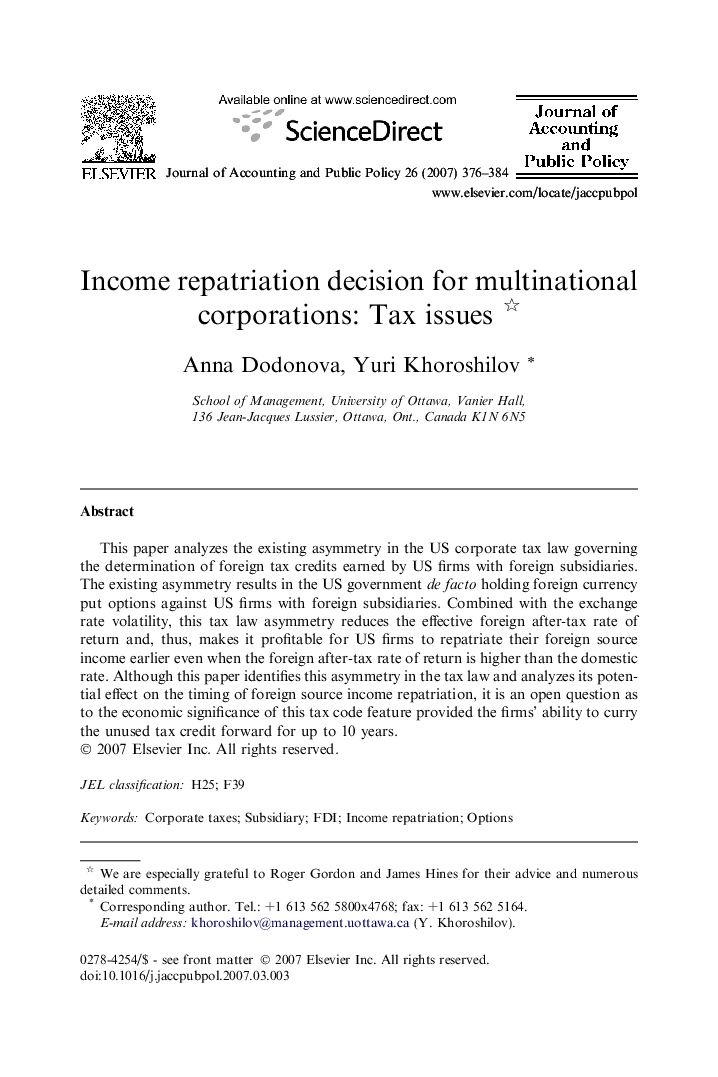| Article ID | Journal | Published Year | Pages | File Type |
|---|---|---|---|---|
| 1006136 | Journal of Accounting and Public Policy | 2007 | 9 Pages |
This paper analyzes the existing asymmetry in the US corporate tax law governing the determination of foreign tax credits earned by US firms with foreign subsidiaries. The existing asymmetry results in the US government de facto holding foreign currency put options against US firms with foreign subsidiaries. Combined with the exchange rate volatility, this tax law asymmetry reduces the effective foreign after-tax rate of return and, thus, makes it profitable for US firms to repatriate their foreign source income earlier even when the foreign after-tax rate of return is higher than the domestic rate. Although this paper identifies this asymmetry in the tax law and analyzes its potential effect on the timing of foreign source income repatriation, it is an open question as to the economic significance of this tax code feature provided the firms’ ability to curry the unused tax credit forward for up to 10 years.
